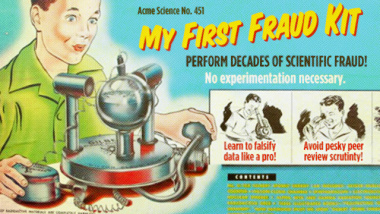There are many kinds of useless economics held in high regard within mainstream economics establishment today. Few — if any — are less deserved than the macroeconomic theory/method — mostly connected with Nobel laureates Finn Kydland, Robert Lucas, Edward Prescott and Thomas Sargent — called calibration. In physics, it may possibly not be straining credulity too much to model processes as ergodic – where time and history do not really matter – but in social and historical sciences it is obviously ridiculous. If societies and economies were ergodic worlds, why do econometricians fervently discuss things such as structural breaks and regime shifts? That they do is an indication of the unrealisticness of treating open systems as analyzable with ergodic concepts. The future is
Topics:
Lars Pålsson Syll considers the following as important: Economics
This could be interesting, too:
Lars Pålsson Syll writes Schuldenbremse bye bye
Lars Pålsson Syll writes What’s wrong with economics — a primer
Lars Pålsson Syll writes Krigskeynesianismens återkomst
Lars Pålsson Syll writes Finding Eigenvalues and Eigenvectors (student stuff)
 There are many kinds of useless economics held in high regard within mainstream economics establishment today. Few — if any — are less deserved than the macroeconomic theory/method — mostly connected with Nobel laureates Finn Kydland, Robert Lucas, Edward Prescott and Thomas Sargent — called calibration.
There are many kinds of useless economics held in high regard within mainstream economics establishment today. Few — if any — are less deserved than the macroeconomic theory/method — mostly connected with Nobel laureates Finn Kydland, Robert Lucas, Edward Prescott and Thomas Sargent — called calibration.
In physics, it may possibly not be straining credulity too much to model processes as ergodic – where time and history do not really matter – but in social and historical sciences it is obviously ridiculous. If societies and economies were ergodic worlds, why do econometricians fervently discuss things such as structural breaks and regime shifts? That they do is an indication of the unrealisticness of treating open systems as analyzable with ergodic concepts.
The future is not reducible to a known set of prospects. It is not like sitting at the roulette table and calculating what the future outcomes of spinning the wheel will be. Reading Sargent and other calibrationists one comes to think of Robert Clower’s apt remark that
much economics is so far removed from anything that remotely resembles the real world that it’s often difficult for economists to take their own subject seriously.
Instead of just assuming calibration and rational expectations to be right, one ought to confront the hypothesis with the available evidence. It is not enough to construct models. Anyone can construct models. To be seriously interesting, models have to come with an aim. They have to have an intended use. If the intention of calibration and rational expectations is to help us explain real economies, it has to be evaluated from that perspective. A model or hypothesis without a specific applicability is not really deserving of our interest.
To say, as Edward Prescott, that
one can only test if some theory, whether it incorporates rational expectations or, for that matter, irrational expectations, is or is not consistent with observations
is not enough. Without strong evidence, all kinds of absurd claims and nonsense may pretend to be science. We have to demand more of a justification than this rather watered-down version of ‘anything goes’ when it comes to rationality postulates. If one proposes rational expectations one also has to support its underlying assumptions. None is given, which makes it rather puzzling how rational expectations has become the standard modelling assumption made in much of modern macroeconomics. Perhaps the reason is, as Paul Krugman has it, that economists often mistake
beauty, clad in impressive-looking mathematics, for truth.
But I think Prescott’s view is also the reason why calibration economists are not particularly interested in empirical examinations of how real choices and decisions are made in real economies. In the hands of Lucas, Prescott and Sargent, rational expectations has been transformed from an – in principle – testable hypothesis to an irrefutable proposition. Irrefutable propositions may be comfortable — like religious convictions or ideological dogmas — but it is not science.
